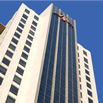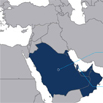Amwal on outlook for 2015 (“The Peninsula”)
Oil prices to stay low longer
Lower prices to hit earnings of chemical and real estate companies, say experts
January 2015

DOHA: Global oil prices are most unlikely to rebound to $100 levels in near term. If the prices stay at current levels, Qatar may run a budget deficit in the current fiscal, though marginal, top market analysts said yesterday. Oil prices will stay low longer. The market will eventually balance settling $70-$75 a barrel in long term, In short term, the market could come down even to $40 levels a barrel before it makes a turnaround, Fahmi Alghussein CEO, Amwal and Afa Boran, Head of Asset Management, Amwal said. “If you ask us whether the benchmark oil prices will go down to $40 levels, I would say, yes. But if you ask me whether it will stay there for long… probably not”, Afa said. Incidentally, in line with Amwal’s expectations, the US bank Goldman Sachs slashed it oil forecasts yesterday saying fuel prices needed to stay low for much longer. The bank analysts said crude oil prices could come down much further in the short term, possibly into the high $30s a barrel before the market saw a rebound. If oil prices continue to stay at $50 levels, Qatar will face a marginal deficit in its budget ranging $5bn-$10bn. But Qatar’s Sovereign Wealth Fund (SWF) is healthy enough to meet its planned funding. The estimated savings of the government are more than $150bn. If you look at these figures, the projected capital spending for the next five years will not be a problem, Fahmi and Afa noted. On the possible funding gap, in the event of dropping oil prices, Fahmi said private sector is capable of filling the gap. “You could see more corporate debts and project financing coming soon into Qatari market”, Afa said. Fahmi said a $50 oil price will naturally affect future company profits and stock prices, but will depend on the country’s current budget surplus, accumulated savings and government willingness to continue with spending plans. Qatar’s stock price already reflects this outlook, as it is already down by 15 percent from their September peaks. On the impact of oil on corporate earnings, Fahmi noted chemical companies and real estate companies will be most affected. Chemical companies will be most directly affected as they get cheap feedstock, so a decline in selling prices would lower profits. Real estate prices and real estate stocks will be affected as well, as they reflect expectations of government spending which in turn reflect regional investor sentiment. Oil services will see a moderate impact, depending on the length and nature of contracts with clients. However, Amwal is bearish on new listings and IPOs in Qatar. “If you ask me today, I would say this is not the best time for listings”, Afa said. Amwal does not foresee any companies going public early this year.
THE PENINSULA
Amwal’s equity funds top best market products
DOHA: Two investment funds of Qatar-based Asset Management Company Amwal continued to emerge as leading products in the market in 2014. Amwal is Qatar’s first independent asset management firm, set up in 1998 and wholly owned by Sheikha Hanadi Nasser bin Khaled Al Thani. Amwal manages equities and balanced portfolios across GCC and Turkey. “Our product ‘Qatar Gate Fund’ is the only Qatar equity fund to have outperformed the Qatar Exchange Index every calendar year since its inception nine years ago. Our GCCfocused product ‘Al Hayer Fund’ generated outperformance of 3.7 percent in 2014, in volatile market conditions”, Amwal’s CEO Fahmi Alghussein and Afa Boran, head of Asset Management, said yesterday. Qatar Gate Fund, in partnership with Ahli Bank, is the best performing Qatari equity fund. Over the last five years our team has cumulatively delivered 110 percent returns vs average 95 percent of other funds and 102 percent of the closest competitor, outperforming the average fund by 15 percent and closest competing fund by 8 percent, he told reporters. Amwal’s Qatar Gate Fund has consistently delivered the lowest downside volatility versus peers, across different timeframes. This is particularly evident in the last year, when the downside volatility of the Fund’s portfolio was only 19 percent, while other funds exhibited downside volatility of around 25 percent, said Afa Boran. Afa said both Qatar and UAE have performed very well since MSCI’s initial announcement of planned upgrade to emerging market status. Since the decision was announced, Qatar is up around 45 percent, while UAE is up around 70 percent. It is important to note that UAE was a cheaper market to start with, he said. “Our investment philosophy is long-term value investing, similar to private equity investing, but with close monitoring of stock prices with an aim to take advantage of volatility…We aim to exploit risks that we understand, and avoid those that we cannot predict”, he said.
THE PENINSULA
-
05 February 2017
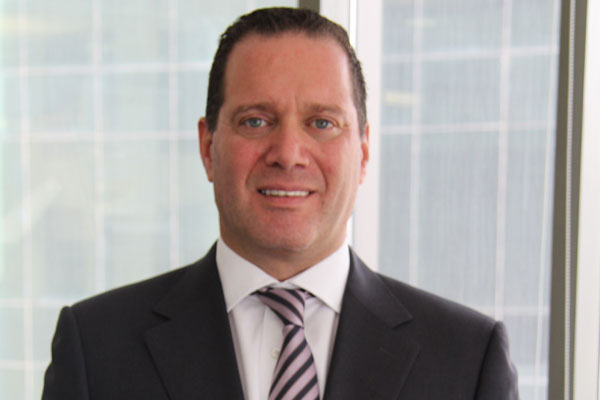 Fahmi Alghussein appointed as new Qatar Chapter Head
Fahmi Alghussein appointed as new Qatar Chapter Head
Read more -
10 October 2016
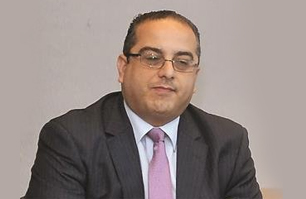 Trump factor to impact GCC market
Trump factor to impact GCC market
Read more -
9 October 2016
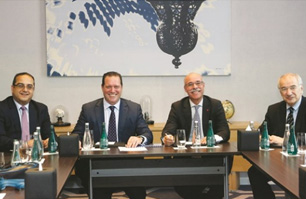 Amwal and Takaud in deal to debut pension products...
Amwal and Takaud in deal to debut pension products...
Read more -
7 November 2016
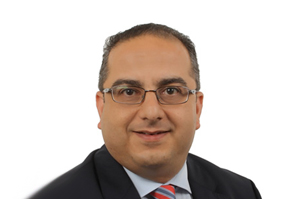 Amwal appoints Talal Samhouri as Head of Asset Management
Amwal appoints Talal Samhouri as Head of Asset Management
Read more -
3 November 2016
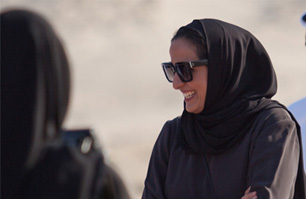 Four Qataris ranked in Middle East magazine’s
Four Qataris ranked in Middle East magazine’s
Read more -
19 October 2016
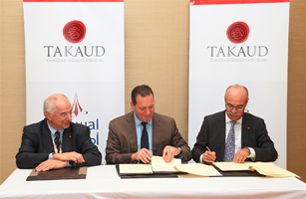 New Takaud And Amwal Partnership Expands
New Takaud And Amwal Partnership Expands
Read more -
01 March 2016
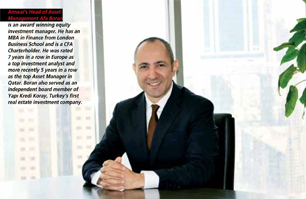 A top down analysis of the real estate market Factors...
A top down analysis of the real estate market Factors...
Read more -
11 November 2015
 Amwal launches GCC fund with German firm
Amwal launches GCC fund with German firm
Read more -
09 March 2015
 Doha Bank plans to launch ETF on QE
Doha Bank plans to launch ETF on QE
Read more


